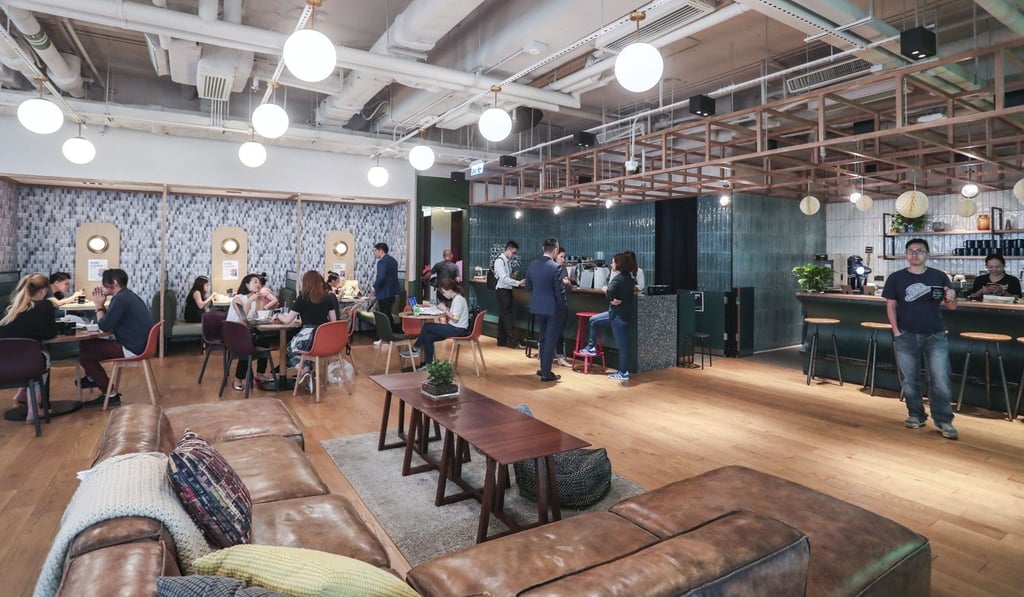Will WeWork’s woes affect Hong Kong’s overbuilt co-working sector?
- WeWork’s rapid expansion in Hong Kong does not mask the fact that the company, which received a US$9.5 billion lifeline from SoftBank, is yet to post a profit
- Market observers believe the current business model is not sustainable and the industry will see consolidation in the next 12 to 24 months

A quick glance at WeWork’s Hong Kong website gives a glimpse into the co-working company’s operations in the city. The start-up operates eight hubs in key business districts, plans to open four more by the year-end and has recently signed leases for another three.
WeWork’s rapid expansion in Hong Kong has seen it acquire about 1 million square feet. Although it is nearly a third less than the 3.7 million sq ft it operates in London, it still translates into about 1 per cent of Hong Kong’s leasing market, while the industry as a whole in the city accounts for 3 per cent.
WeWork’s rapid expansion masks the harsh realities about the sector. Most of the players in the co-working space are not profitable.

Now valued at less than US$8 billion after the bailout, WeWork has seen losses pile up over the past three years – rising from US$429 million in 2016 to US$890 million in 2017 and nearly doubling again to US$1.6 billion last year. As of June this year, the start-up’s minimum lease obligations stood at US$47.2 billion while it sold leases only worth US$3.4 billion globally, according to media reports.
“Expansion in the flex space sector has slowed, vacancy is increasing, rents are falling and businesses are going to be more cost sensitive during this time of uncertainty,” said Michael Glancy, senior director of Hong Kong markets at JLL.